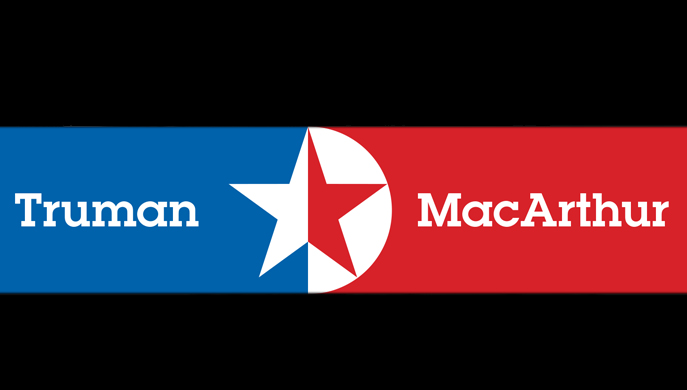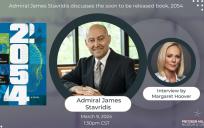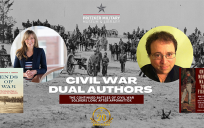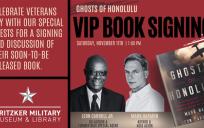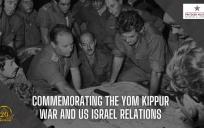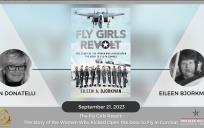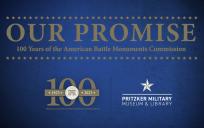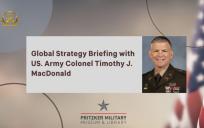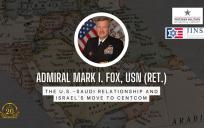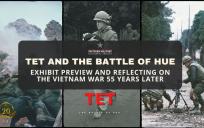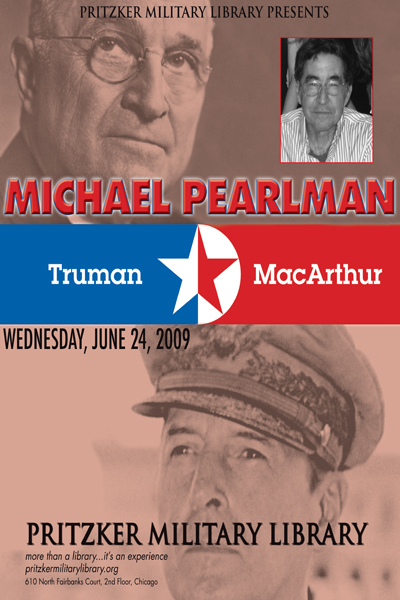
Record date:
Michael Pearlman: Truman and MacArthur: Policy, Politics, and the Hunger for Honor and Renown
The nerve of him! How dare that little necktie salesman, that cheap tinhorn politician - how dare he pull a five-star general from the field of battle? We're talking about the man who beat Japan, the mighty MacArthur! Who did Harry Truman think he was - President?
Truman and MacArthur is a detailed account of one of the most fractious relationships between a commander and commander-in-chief in American history. In the waning months of World War II, Truman assumed the Presidency and inherited MacArthur as his commander in the Pacific; and as he dealt with challenges in post-war Europe and a difficult re-election campaign, Truman was long willing to defer to the popular general on policy toward post-war Japan and Korea.
There was, however, a breaking point. In 1950, after deriding the threat of Chinese involvement in Korea, MacArthur kept pushing further into Communist territory. Suddenly, over a hundred thousand Chinese troops were pouring across the border, and MacArthur wanted license for a full-scale invasion of China - with nuclear weapons at the ready. When Truman was unwilling to grant that license, MacArthur began to work the press, the opposition party in Congress, and anyone else who would listen, desperate for the chance to pursue what he saw as his holy mission.
Pearlman finds surprising notes in the early lives of both men that set the stage for their clash. As a young officer in the Civil War, MacArthur's father led a charge that defied orders and won him a promotion; later, his career languished, halted by meddling civilian authorities - or so the story was told to his son. Truman, on the other hand, grew up in awe of legendary generals, and was known to speak more proudly of his service in the Missouri National Guard than his presidency. Truman and MacArthur raises important questions about the relationship between commander and commander-in-chief, and offers a new look at a perilous crossroads in the Korean War.
Michael Pearlman retired in 2006 as a professor of history at the United States Army Command and General Staff College. He is also the author of Warmaking and American Democracy: The Struggle Over Military Strategy, 1700 to the Present.
